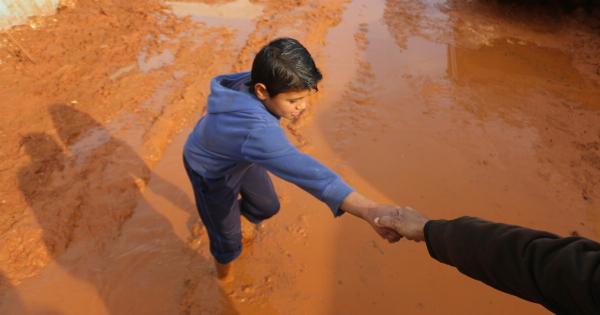Mosquitoes are bothersome creatures that can ruin a pleasant evening outdoors, leaving behind itchy, red bumps. While most people experience mild reactions to mosquito bites, some individuals may have allergic reactions that warrant closer attention.
It is important to know how to differentiate between a typical reaction and a more serious one. This article will discuss the signs, symptoms, and treatment options for allergic reactions to mosquito bites, providing you with the knowledge to identify when it’s necessary to seek medical assistance.
What Causes Mosquito Bite Allergies?
When a mosquito bites, it injects its saliva into the skin, which contains several proteins that prevent our blood from clotting, allowing the mosquito to feed.
In some people, the immune system overreacts to these proteins, triggering an allergic reaction. The allergenic component responsible for such reactions is typically the mosquito’s saliva.
Common Symptoms of Mosquito Bite Allergies
While most mosquito bites result in minor swelling, itching, and redness that resolve on their own within a few days, individuals with mosquito bite allergies may experience more severe symptoms. Here are some common signs of an allergic reaction:.
- Large Swelling: Allergic reactions often cause significant swelling around the mosquito bite area. The swelling can extend beyond the immediate bite location and may measure several inches in diameter.
- Severe Itching: Mosquito bite allergies tend to cause intense itching that may persist for an extended period.
- Blisters: In some cases, mosquito bites can develop into blisters, especially in individuals with severe allergic reactions.
- Hives: Allergic individuals may develop hives, which are raised, itchy welts on the skin.
- Localized Redness: The area surrounding the mosquito bite may become intensely red, extending beyond the typical small red bump.
- Multiple Bites: People with mosquito bite allergies often experience numerous bites in a localized area due to mosquitoes being attracted to certain chemicals emitted by their body.
- Difficulty Breathing: In rare cases, severe allergies to mosquito bites can cause difficulty breathing or wheezing. This is a potentially life-threatening symptom known as anaphylaxis.
- Systemic Reactions: Some individuals may experience systemic reactions such as headache, fever, fatigue, or body aches following mosquito bites.
- Infection: Excessive scratching of mosquito bites can break the skin, increasing the risk of infection. Watch for signs of infection, such as increased redness, warmth, swelling, discharge, or tenderness.
Differentiating a Normal Reaction from an Allergic Reaction
It is essential to be able to differentiate between a normal reaction to a mosquito bite and an allergic reaction. Most minor reactions subside within a few days, whereas allergic reactions tend to persist or worsen.
Here are a few distinguishing factors:.
- Symptom Intensity: Normal reactions typically involve mild to moderate symptoms, while allergic reactions are often more severe.
- Duration: Normal reactions improve within a few days, whereas allergic reactions may last longer, sometimes up to several weeks.
- Progression: Allergic reactions may progressively worsen and spread beyond the immediate bite area, unlike typical reactions.
Treatment Options for Allergic Reactions to Mosquito Bites
If you suspect an allergic reaction to a mosquito bite, several treatment options are available:.
- Topical Creams or Ointments: Over-the-counter hydrocortisone creams or antihistamine creams can help reduce itching and inflammation.
- Antihistamines: Taking oral antihistamines, available in tablet or liquid form, can help alleviate itching and reduce other allergic symptoms.
- Cold Compress: Applying a cold compress or ice pack to the affected area can help relieve itching and reduce swelling.
- Elevation: Elevating the affected limb or area can help reduce swelling.
- Avoid Scratching: Although tempting, scratching mosquito bites can worsen the allergic reaction and increase the risk of infection. Encourage children to avoid scratching or apply protective dressings if necessary.
- Medical Intervention: If the allergic reaction is severe or persistent, it is advisable to seek medical attention. A healthcare professional may prescribe stronger topical creams, oral steroids, or other medications, depending on the severity of the reaction.
Prevention Tips
Preventing mosquito bites can help avoid allergic reactions altogether. Here are some useful prevention tips:.
- Wear Protective Clothing: When spending time outdoors, especially in mosquito-prone areas, wear long-sleeved shirts, long pants, socks, and shoes.
- Use Insect Repellents: Apply mosquito repellents containing DEET, picaridin, or oil of lemon eucalyptus to exposed skin.
- Avoid Peak Mosquito Activity: Mosquitoes are most active during dawn and dusk. Try to limit outdoor activities during these times.
- Eliminate Standing Water: Mosquitoes breed in stagnant water. Regularly empty and clean containers that can collect water, such as flowerpots, birdbaths, and buckets.
- Install Screens: Ensure that windows and doors have properly fitted screens to prevent mosquitoes from entering your home.
- Mosquito Nets: Use mosquito nets over beds, cribs, or strollers to protect yourself and your family while sleeping or resting.
When to Seek Medical Attention
Although most mosquito bite allergies can be managed with over-the-counter treatments, it is crucial to know when medical intervention is necessary. Seek immediate medical attention if you experience:.
- Difficulty Breathing: This could be a sign of a severe allergic reaction called anaphylaxis, which requires immediate emergency care.
- Dizziness or Lightheadedness: These symptoms, along with other concerning signs, may indicate a severe allergic reaction.
- Severe Swelling: If the swelling does not subside after a few days or is rapidly spreading, it is important to consult a healthcare professional.
- Signs of Infection: If the bite area becomes increasingly red, warm, or tender, or if pus or discharge develops, it may be infected and require medical attention.
- Unbearable Itching: If itching becomes unbearable, despite home remedies or over-the-counter treatments, a healthcare professional may suggest alternative approaches.
Conclusion
Allergic reactions to mosquito bites can cause discomfort and, in some cases, significant distress. Knowing the signs and symptoms of mosquito bite allergies is vital for proper identification and appropriate treatment.
While most reactions resolve with time and basic care, severe or persistent symptoms should be evaluated by a healthcare professional. By taking preventative measures and keeping informed about mosquito bite allergies, you can enjoy your outdoor experiences while minimizing the risk of allergic reactions.






























